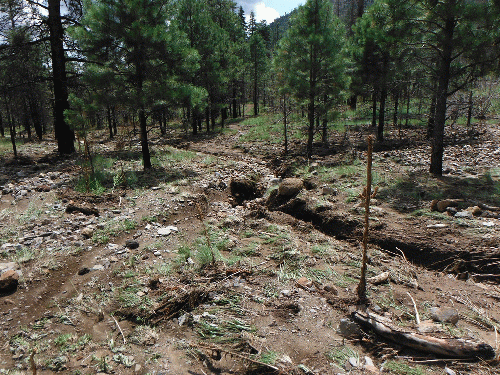From New Yorker
Two questions lie at the heart of the climate crisis.
The febrile summer of 2021 hammers home what we know and what we don't about climate change. It can be summed up in two paragraphs, neither of which is comforting.
1. We understand about how much the temperature is going to rise if we keep pumping greenhouse gases into the atmosphere. This has been the central scientific preoccupation for more than three decades, translating gigatons of carbon and methane into degrees of warming, and researchers have got it more or less right, from James Hansen's original predictions in the late nineteen-eighties to the secret reports that Exxon scientists provided executives during the same period. The precision of these estimates increases the more we learn; new data this year on the effect of clouds, for instance, make clear that they will do more to warm the earth than to cool it, which was one of the last remaining uncertainties. Simply put, doubling the amount of greenhouse gas from before the Industrial Revolution in the atmosphere would increase the earth's temperature somewhere around three degrees Celsius. That's what we're on track to do right now. It's a scary high number.
2. We understand much less about how much damage those three degrees would do. It's hard to build computer models powerful enough to calculate the rise in temperature, but infinitely harder to predict the resulting havoc, because that's a function of many things that we can't really measure. Some of those things are human -- how will we respond as societies to catastrophe? (It's perhaps not a great sign that many Americans worried about climate change are now heading to survivalist school. In the words of one attendee, "Now I feel like, 'Oh, my God, I can set up a mud hut.'"). But many of these unpredictables are physical. Consider the jet stream: it clearly governs much about life in our hemisphere, but until recently few scientists suggested that it could fundamentally shift its behavior. Now the melting of the Arctic has reduced the temperature gradient between the equator and the North Pole, and that reduction, in turn, seems to be making the jet stream sluggish, setting up such events as the devastating European flooding. "We had a low-pressure field over central Europe which did not move, it was persistent and long-lasting," a researcher at the Potsdam Institute for Climate Impact Research told the Financial Times. "Normally, our weather patterns moved from west to east," but "this engine" -- the temperature gradient" -- that we have is weakened."
There are plenty of other systems that we're now starting to really worry about. The marine equivalent, the Gulf Stream, is quite suddenly slowing, probably because fresh-water is pouring off the Greenland ice sheet and disrupting the density differences that drive the great ocean currents. We don't know how close we are to poorly understood "tipping points" that could rapidly turn the Amazon from rain forest into savanna. Kelp forests, the "rain forests of the sea" that cover a quarter of the planet's coastline, appear to have shrunk by a third in the past decade. In fact, name a large physical system on the planet, and chances are that it is now in chaotic flux.
The lessons to be drawn from all of this are not novel. One is that we need to slash greenhouse-gas emissions with incredible speed, in order to reduce the total amount of warming, and hence reduce the pushing and shoving on basic physical systems. The other is that we need to prepare ourselves and our civilizations for massive dislocations.
But we really need to make ourselves think about what it means to be flying blind into the future. We focus a lot of attention on how much the temperature will rise, because it's a knowable number; our political, diplomatic, and economic debates are conducted as if it's the essential fact. But the scarier question is what each tenth of a degree will do. We don't know, and we can't really know: these fundamental systems are clearly intertwined, and their breakdowns are likely to cascade.
When a team of researchers at the Massachusetts Institute of Technology published their landmark study "The Limits to Growth," in 1972, the eeriest part of their prediction was that societal collapse -- set for some time in the next few decades -- would come about from the somewhat opaque interactions of the world's systems. That is, the M.I.T. team didn't name a single cause that would inflict fatal damage on the planet -- their (necessarily crude, at the time) computer modelling simply showed that, past a certain point, chaos would ensue. Ever since, a few people have tracked their predictions; an analyst at the accounting firm KPMG, working on her own time, published a recent assessment, and it shows that we're tracking some of their predicted scenarios all too closely.
In that kind of world, we should stand on the brakes, and we should make sure that we've got seat belts and airbags working, not to mention an ambulance standing by. We're not an accident waiting to happen -- as of now, we're an accident in the process of happening.
Passing the Mic
(Note: You can view every article as one long page if you sign up as an Advocate Member, or higher).






